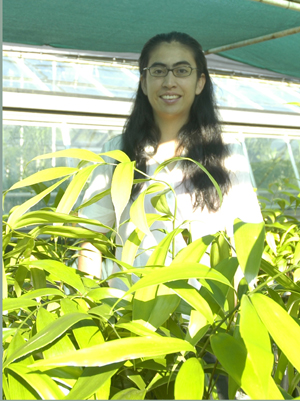 Montgomery Botanical Research Fellow Cristina Lopez-Gallego, from the Universidad de Antioquia, Colombia, recently gave a seminar on cycad research in Colombia.
Montgomery Botanical Research Fellow Cristina Lopez-Gallego, from the Universidad de Antioquia, Colombia, recently gave a seminar on cycad research in Colombia.
With many neotropical cycads (zamias included) critically endangered, more information on cycad biology is needed to support cycad conservation efforts. Cristina’s research seeks to provide detailed data on population biology to develop informed conservation strategies for cycads. She is working with the IUCN-SSC Cycad Specialist Group on a network of cycad population monitoring programs to generate relevant and high-quality biological information for conservation and for evaluating potential management and use strategies.
There are few pristine habitats left in Colombia, due to the many areas disturbed by agriculture and development. With only 40% of habitats worldwide being primary forest, that leaves over 60% of habitats worldwide in a degraded state. Disturbed habitats are very different from primary forests; the high light conditions of the degraded lands appear to be affecting the life history of zamias, essentially speeding up their life history. Zamia fairchildiana in disturbed habitats are quicker to put out new leaves and seed than their counterparts in undisturbed forest lands. Cristina’s research on Zamia fairchildiana in Costa Rica suggests that environmental changes caused by habitat degradation can considerably affect the life-history of populations. She is developing research to evaluate the effects of these life-history changes on the ecological and evolutionary dynamics of cycad populations in Costa Rica and Colombia.
Cristina’s current research is being done in the heavily disturbed Tropical Andes region as well as the Tumbes-Chocó-Magdalena region of Colombia, both known biodiversity hotspots.
